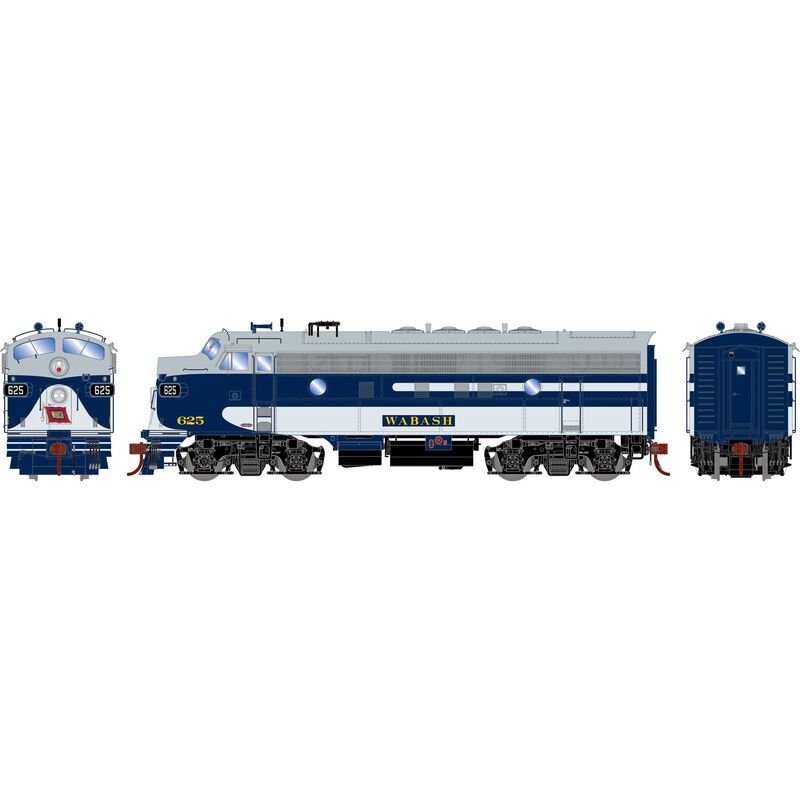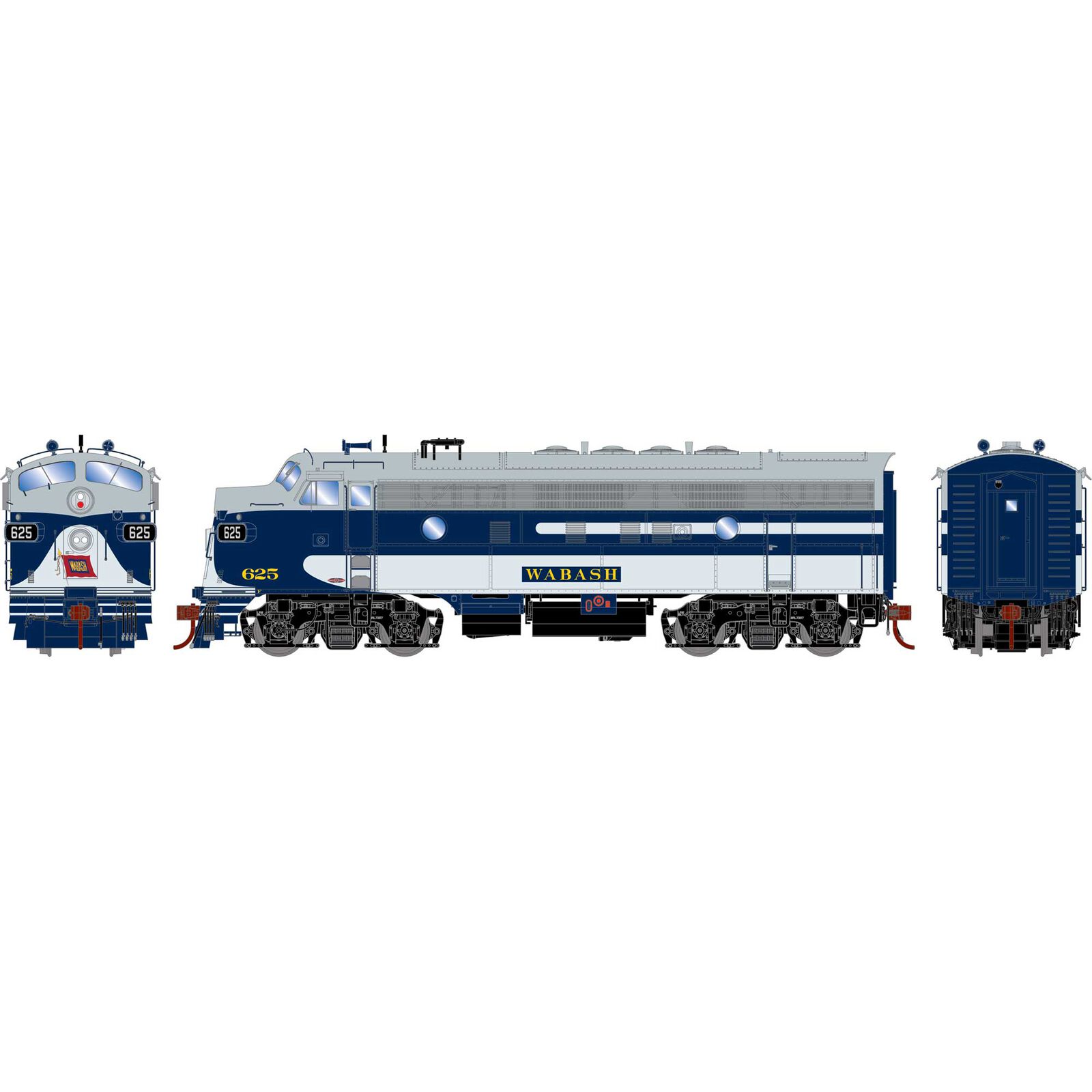WAB FEATURES:
- F7 Phase I
- No dynamic brakes
- Dual single-note air horns (A-units)
- Passenger pilot
- Cooling coils on roof
Wabash units 1158-1189 were delivered in 1951-52. In the 1960s, they were renumbered into the 600-726 series. Wabash 1189 has been preserved and is currently operational at a railroad museum in Illinois.
ROAD NUMBER SPECIFIC FEATURES:
#625- Nose MU connection
- cut skirts
- Nose MU connection
- cut skirts
- Full Skirt
- Full Skirt
F-UNIT SERIES LOCOMOTIVE FEATURES:
- Coupler cut levers
- Trainline and MU hoses
- Windshield wipers
- Lift rings
- Wire grab irons
- Sanding lines
- Lit signal lights and/or beacons, if equipped
- Bell placement & type per prototype
- Directional constant lighting
- Headlight brightness remains constant
- Separately-applied photo-etched metal and injection molded detail parts
- Detailed fuel tank with fuel fillers, fuel gauges, breather pipes & retention tanks
- Speed recorder unless noted
- See-through cab windows and full cab interior
- Etched metal fan grilles
- Body-mounted McHenry® scale knuckle couplers - Kadee® compatible
- DCC-ready features Quick Plug™ plug-and-play technology with 21-pin NEM connector
- Scaled from prototype resources including drawings, field measurements, photographs, and more
- Accurately painted and printed paint schemes
- Genesis driveline with 5-pole skew wound motor, precision machined flywheels, and multi-link drivetrain
- All-wheel drive with precision gears for smooth & quiet operation
- All-wheel electrical pickup provides reliable current flow
- Wheels with RP25 contours operate on all popular brands of track
- LED Lighting for realistic appearance
- Heavy die-cast frame for greater traction and more pulling power
- Packaging securely holds for the model for safe storage
- Minimum radius: 18” — Recommended radius: 22”
SOUND-EQUIPPED MODELS ALSO FEATURE
- Onboard DCC decoder with SoundTraxx Tsunami2 sound
- Dual cube speakers for optimal sound quality
- Sound units operate in both DC and DCC
- Individual sound boards installed in both A and B units (sound units only)
- Engine, horn, and bell sounds work in DC
- Some functions are limited in DC
- All functions NMRA-compatible in DCC mode
- Excellent low-speed operation
- Program a multiple unit (MU) lashup with lead unit only horn, bell, and lights
- Lighting effects such as beacons, Gyralight where prototypically accurate
- Many functions can be altered via Configuration Value (CV) changes
- CV chart included in the box
PROTOTYPE SPECIFIC INFORMATION
EMD F-units were a line of diesel-electric locomotives produced between November 1939 and November 1960 by General Motors Electro-Motive Division and General Motors-Diesel Division. Final assembly for all F-units was at the GM-EMD plant at La Grange, Illinois and the GMDD plant in London, Ontario, Canada. They were sold to railroads throughout the United States, Canada, and Mexico.
Structurally, the locomotive was a carbody unit, with the body as the main load-bearing structure, designed like a bridge truss and covered with cosmetic panels. The so-called bulldog nose was a distinguishing feature of the locomotive’s appearance, and made a lasting impression in the mind of the traveling public.
The F-units were the most successful “first generation” road (main line) diesel locomotives in North America and were largely responsible for superseding steam locomotives in road freight service. Before this, diesel units were mostly only built as switcher locomotives, and only used in rail yards.
F-units were sometimes known as “covered wagons”, due to the similarity in appearance of the roof of an F-unit to the canvas roof of a Conestoga wagon, an animal-drawn wagon used in the westward expansion of the United States during the late 18th and 19th centuries. When a train’s locomotive consist included only F-units, the train would then be called a wagon train. These two usages are still popular with the railfan community.

